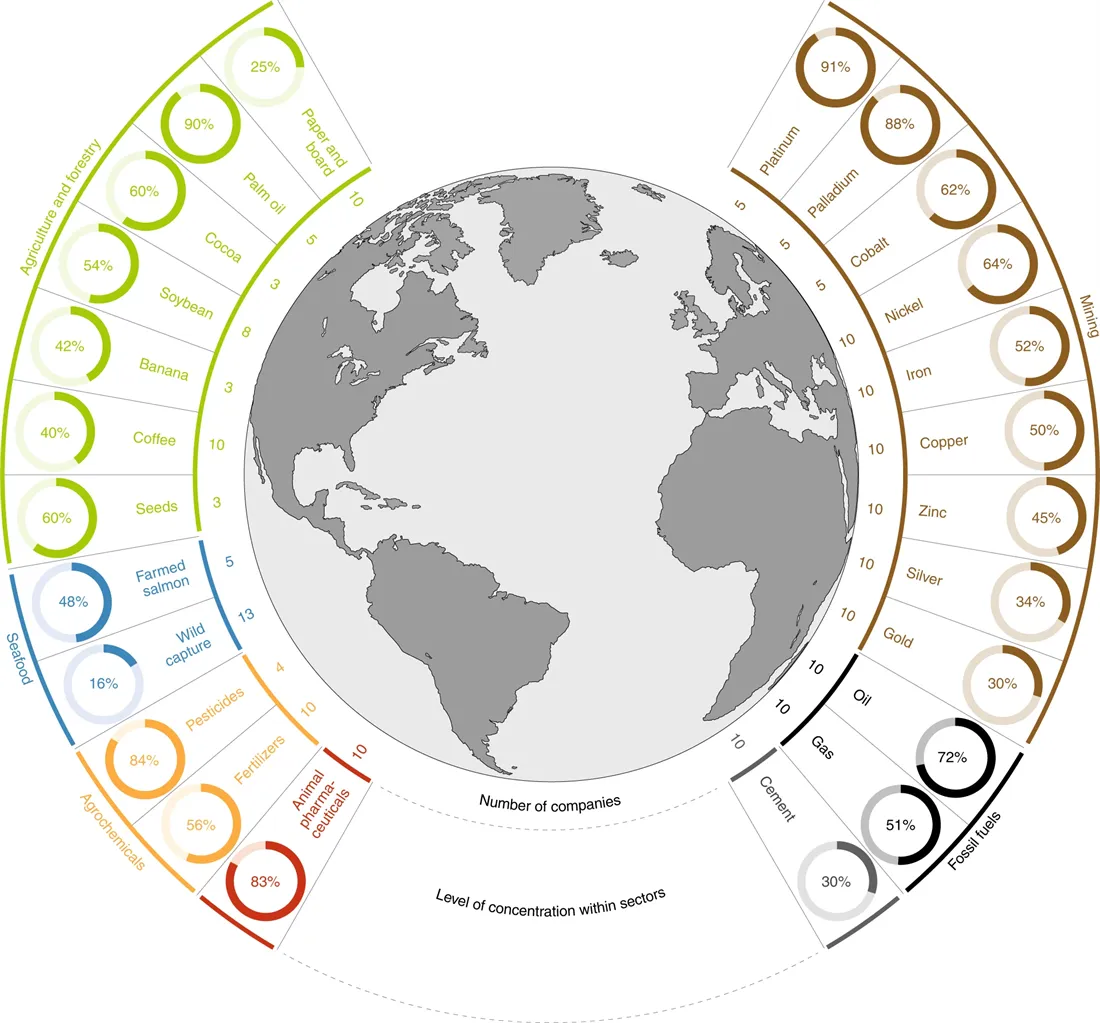News
•
21 okt 2019
Time for corporate biosphere stewardship
A small number of transnational corporations hold enough power to support or hamper a global transition to more sustainable future.
The research led by GEDB’s Carl Folk and supported by Jean-Baptiste Jouffray, Beatrice Crona, Alice Dauriach and Victor Galaz as well as extended team of academics from Europe, Australia and the USA.
The study provides concrete examples of the impact companies have on the planet. For example, more than 70 percent of the world's greenhouse gas emissions can be traced back to 100 companies. Another examples shows that only four companies control 84% of the agricultural pesticides market, or that ten companies that account for 25% of the total paper and board production.

The authors highlight that past and present voluntary corporate social and environmental responsibility has been too ineffective. If these negative trends continue it will be impossible to execute transition towards a more sustainable future. To make matters worse certain transnational companies have used their power to lobby regulators to weaken environmental and social standards in order to increase their profits.
In conclusion the authors have identified six observed positive signs of change towards ‘Corporate Biosphere Stewardship’, which they believe could and should be scaled up in order to promote role of major transnational corporations in biosphere protection. However, the authors add that these recommendations can only be effective if combined with effective public policies and improved governmental regulations.
Folke, C., H. Österblom, J.-B. Jouffray, E. Lambin, M. Scheffer, B.I. Crona, M. Nyström, et.al. 2019. Transnational Corporations and the Challenge of Biosphere Stewardship. Nature, Ecology and Evolution 3:1396–1403
Photo: Dmitry Rukhlenko - Travel Photos / Alamy Stock Photo
